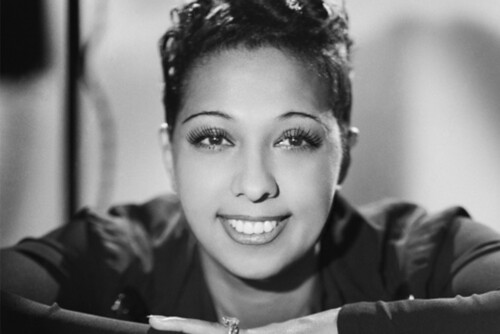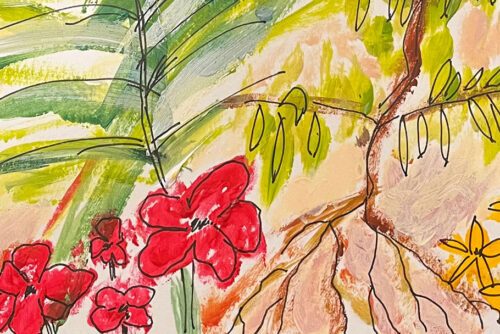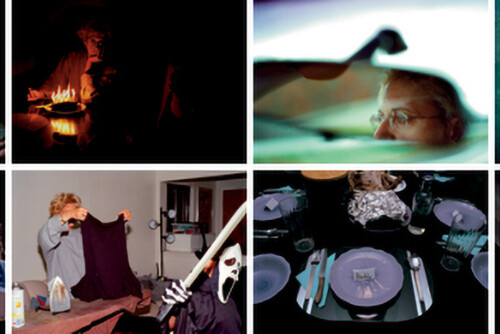Touki Bouki, known as sub-Saharan Africa’s first avant-garde film, cites Baker through her singing voice. This citation is associated with the film’s two main characters, Mory (Magaye Niang) and Anta (Mareme Niang), who scheme and plot to leave their town for Paris. Whenever they discuss their plans, the clip from Baker’s recording is heard. In one particular scene, the couple is riding on Mory’s motorcycle through a field of fallow trees. Gradually, the sound of the bike gives way to Baker’s voice. She sings: “Paris, Paris, a bit of paradise on earth.” The action—Mory and Anta traveling on modern motorized transport—and the desolate setting, combined with Baker’s beckoning lyrics, is ironic and cutting. For as Baker’s excerpt recurs, both her high-pitched singing voice and the lyrics seem to constitute a siren’s song enticing the young travelers to their destruction. The recurrence can also express Mory and Anta’s tenacity, true to their commitment to migrate. In the Baker sequences, the success she represents, along with the fantasy Paris of which she sings, reinforces the illusory, seductive nature of their closely held dreams.
Next, the story of Alma’s Rainbow includes a character that is a former Baker impersonator who has returned, broke and a little lost, from paradise to New York. In this girl’s coming-of-age comedy-drama, Rainbow Gold (Victoria Gabrielle Platt) seeks aesthetic and sexual independence from her protective mother. The mother, Alma Gold (Kim Weston-Moran), runs a beauty shop, located on the first floor of a brownstone she apparently owns. Suspicious of unregulated glamour and Rainbow’s dreams of studying dance, she keeps a close eye on her daughter. In the Baker sample, Alma celebrates her birthday with friends, and at one point they gather for a group picture. Before the photographer can click the shutter, all eyes turn toward the Baker impersonator, Ruby Gold (Mizan Nunes). Singing “Happy Birthday” in French and wearing a costume worthy of Baker, which she shows the rapt audience by turning around slowly, the display is much more her spectacle than it is a tribute to her sister. Predictably, they clash throughout the movie, as this Bakeresque character contrasts with her mother, who is financially responsible but repressed and cautious about romance. They do find ways to come to terms with each other and their particular struggles through their shared experiences performing in an all-girl singing group. They both confront the bundle of ambition, artistry, and folly that this period in their lives represents. Alma’s Rainbow shares Tree Shade‘s concerns with audacity and self-expression in constructions of beauty and womanhood, highlighting the risk and release involved in them through evocations of Baker.
Finally, Madame Sata is based on the story of Joao Francisco de Santos (Lázero Ramos), who was a well-known Brazilian transvestite performer with the stage name Madame Sata and an early contemporary of Baker’s. The movie he has inspired features an excerpt from Baker’s film, Princess Tam Tam. The clip serves to paint a picture of De Santos’ interior life, where his wishes are playful yet tinged with desperation. Following a sequence in which De Santos discusses his ideal life of leisure and beauty with a friend, they are seen in a cinema audience watching the extended production sequence from Princess. Madame Sata, out of costume, gazes at the screen intently, studying Baker’s moves, taking in every detail of her presentation, perhaps for use in his own show. The position of the Princess Tam Tam excerpt in the movie invites connection between movie viewing and daydreaming. Moreover, it indexes Baker’s status as an international feminine icon that, in this case, embodies intersecting fantasies of self-absorption/self-expression, leisure, stardom, and glamour. The highly constructed, illusory nature of gender—and race, for that matter—in Baker’s performance helps to make it available for impersonation and sampling by both men and women.



